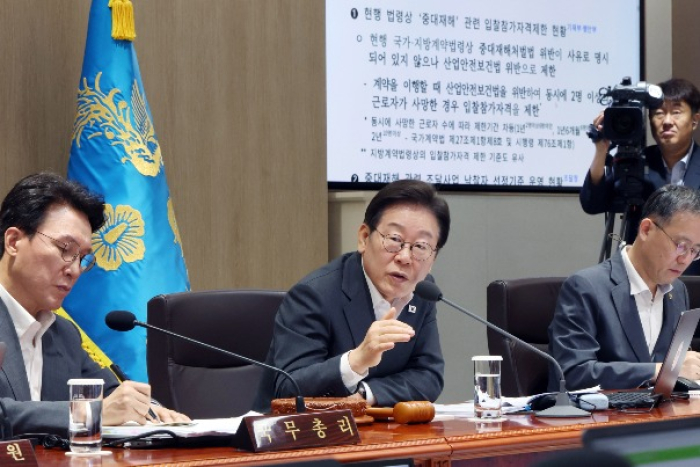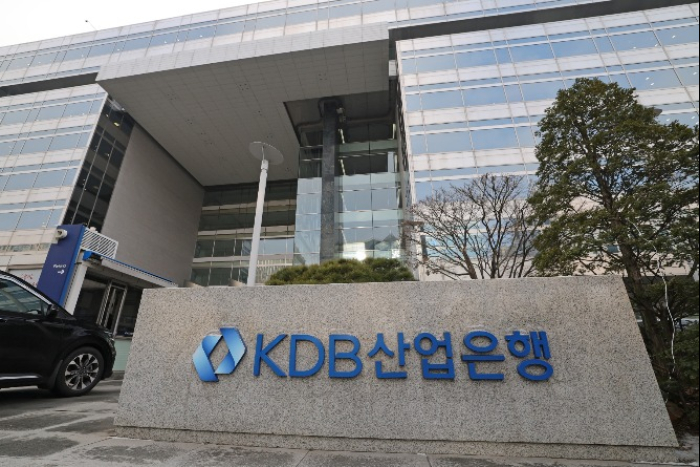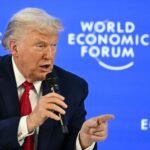
South Korea is considering creating a 150 trillion won ($110 billion) national fund to support high-tech industries as part of President Lee Jae-myung’s campaign pledge to elevate the country into one of the world’s top five economies and top three AI hubs.
The National Growth Fund is expected to exceed the originally planned 100 trillion won in size and act as a catalyst for private sector investment in early-stage tech firms and core industries, according to officials from the National Policy Planning Committee and the Financial Services Committee on Monday.
It is expected to launch by the end of this year or early next year.
The initiative includes a 50 trillion won high-tech industry fund formed by the state-run Korea Development Bank (KDB), targeting sectors such as aerospace, artificial intelligence, biotech, defense and semiconductor, as well as energy.
On top of that, the National Growht Fund aims to mobilize up to 100 trillion won in private capital, including contributions from commercial banks, brokerage companies, pension funds, corporations and individual investors.

FUND OF FUNDS
The KDB fund will operate as a fund of funds, with each sub-fund targeting specific sectors, including technology firms with intangible assets like patents, technology infrastructure, venture and deep-tech companies and scale-up capital for startups, according to the sources.
The state-run bank will contribute at least 10% of capital to each sub-fund as junior equity investors, absorbing possible investment losses ahead of other participants.
The government is also weighing a plan to have commercial financial institutions invest in mezzanine and subordinated tranches of venture capital and scale-up sub-funds. Their commitment will represent about 10% of the capital of those vehicles.
Alternatively, some of the institutions may provide low-interest loans to portfolio companies, or set up joint ventures.
At a meeting with senior policy aides last week, President Lee urged financial institutions to move beyond easy interest gains from mortgage lending and take a more active role in investment.

The National Growth Fund will serve as a key policy tool for Lee’s so-called 3.3.5 vision to transform the country into one of the world’s top three AI countries, raise economic growth potential to 3% from this year’s estimated 1.8% and join the ranks of the world’s top five economies.
The world’s 11th-largest economy expects the National Growth Fund to redirect idle liquidity, currently concentrated in real estate, into strategic high-tech industries.
“We’re seeing countries around the world pour astronomical sums into advanced industries to gain global leadership. But domestic startups and venture firms are facing a severe funding drought,” said an official at a major financial holding company.
“There’s a pressing need to channel capital into sectors with strong potential for industrial and economic impact,” he added.
To encourage broader participation in the national fund, the government is reviewing tax breaks.
DOUBTS REMAIN
Despite its ambition, some market observers warn the policy-driven vehicle could be inefficient in capital allocation and lose momentum under new administrations.
They question whether the National Growth Fund will be able to attract the targeted private investment of 100 trillion won, citing past failures to maintain long-term policy consistency.
“The so-called New Deal Fund and its relevant exchange-trade funds was launched during the Moon Jae-in administrationt, targeting battery, bio, internet and game. But when the administrations changed, even the fund names and strategies were overhauled,” said a portfolio manager at a domestic asset management firm.
“This shows how difficult it is for government-led funds to make long-term investments in promising companies as originally intended,” he added.
By Hyeong-Gyo Seo and Sung-Soo Bae
seogyo@hankyung.com
Yeonhee Kim edited this article.














